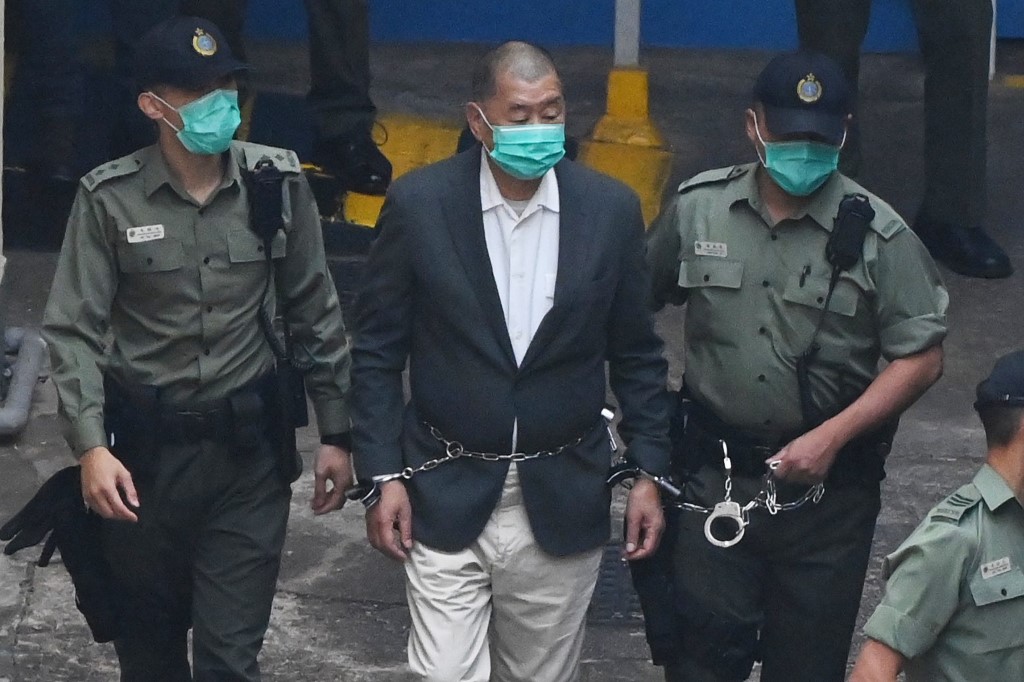Hong Kong media tycoon and Beijing critic Jimmy Lai appeared in court on Saturday morning to face a charge under the national security law that could put him in jail for life.
He is accused of colluding with foreign countries, by calling on overseas governments to sanction Hong Kong and China in response to the crackdown on pro-democracy activism in the city.

Lai, 73, is the most high-profile figure charged under the sweeping law, which has targeted the city’s pro-democracy movement but brought a semblance of calm to the finance hub after months of often-violent protests.
The police’s new national security department charged him Friday with “collusion with a foreign country or with external elements to endanger national security” under the security law. The offence carries a penalty of up to life imprisonment.
The prosecutor told the court Lai’s offence was requesting, from July 1 to Dec 1, that a foreign country or institution, organisation or individual outside mainland China, Hong Kong, and Macau “impose sanctions or blockade, or engage in other hostile activities” against Hong Kong and China.
Lai, dressed in a suit and calm throughout, said he acknowledged the charge.

Chief Magistrate Victor So, one of the six magistrates hand-picked by the city’s pro-Beijing leader Carrie Lam to handle national security cases, said the prosecution needed time to further investigate more than a thousand messages from Lai’s Twitter accounts, a number of media interviews the tycoon gave, and a number of overseas visits in relation to calls for US sanctions against Hong Kong and China.
After the hearing, Lai’s supporters shouted words of encouragement, which he returned with a heart-shape hand gesture.
Lai is the owner of Hong Kong’s Apple Daily, a popular newspaper that is unashamedly pro-democracy and fiercely critical of authorities. Police raided the paper’s headquarters in August and arrested a string of senior company figures, including Lai.
Last week, he was denied bail and remanded in custody until April after being charged with fraud. He was set to apply for bail on that charge at the High Court on Tuesday.
However, the sweeping law states that no bail should be granted unless the judge has sufficient grounds to believe the suspect will not continue to endanger national security.
On Saturday, magistrate So denied Lai’s bail application.
The controversial law also allows some trials to be heard behind closed doors, or even be tried in mainland China.
Beijing’s clampdown on Hong Kong, especially prominent political figures, has dramatically accelerated since it imposed the security law in June.
Opposition lawmakers have been disqualified from the legislature and leading democracy activists have been jailed.
Two dozen people have been arrested under the law and four have so far been officially charged.
Support HKFP | Policies & Ethics | Error/typo? | Contact Us | Newsletter | Transparency & Annual Report | Apps
Help safeguard press freedom & keep HKFP free for all readers by supporting our team
























